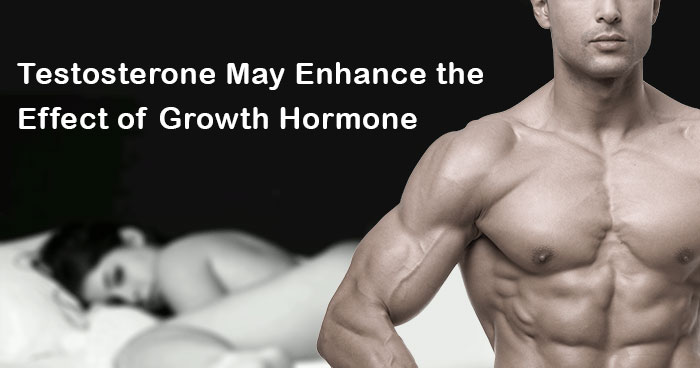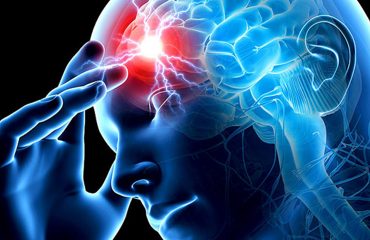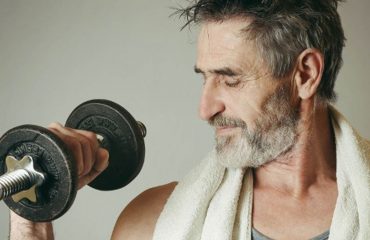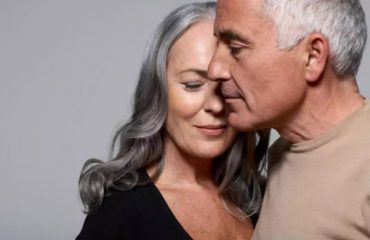Andropause is the decrease in the production of male hormones called androgens (DHEA and testosterone) and the increase in estrogen and SHBG (sex hormone binding globulin). It is estimated that about 25 million men between the ages of 40 and 50, and half of all men between the ages of 50 and 70, suffer from andropause. Because it has a slower, less obvious onset than female menopause, physicians do not recognize it easily and historically it has not been considered a medical issue.
- Low levels of growth hormone and testosterone can result in
- Sexual dysfunction,
- Low energy levels,
- Weight gain,
- Loss of muscle and bone,
- Cognitive impairment,
- Depression
- Metabolic syndrome
- Type 2 diabetes
- Cardiovascular disease
The benefits of using testosterone to treat andropause include:
- A healthier heart
- Improved sexual function and increased desire
- Decreased body fat
- Increase in muscle mass
- Increased bone density
- Better cognitive function
The benefits of growth hormone therapy include:
- Improved muscle strength
- Decreased body fat
- Improved libido
- Improved cardiovascular health
- Stronger bones
- Improved cognitive function
- Improved sleep
- Better mood
Study 1
Researchers evaluated the effects of growth hormone and testosterone injections on body mass, body composition, aerobic fitness, anaerobic fitness and lipids in 14 men between the ages of 45 and 60. The results showed a strength and endurance fitness program alone did not cause significant changes to body mass, body composition, aerobic capacity or anaerobic capacity. Testosterone and growth hormone injections combined with a strength and endurance program significantly improved cholesterol levels (lipid profile), testosterone levels, growth hormone levels, IGF-1, maximal oxygen uptake, anaerobic threshold, fat free mass, total body fat and maximal workout rate.
Since the beneficial effects of treatment with testosterone are similar to the beneficial effects seen with HGH treatments does it make sense to use both together?
Study 2
Researchers evaluated the impact of testosterone alone, growth hormone alone and testosterone in combination with growth hormone on protein metabolism. The results showed testosterone has a positive effect on protein synthesis but when used in combination with growth hormone, it enhances the effect of growth hormone to increase IGF-1 (Insulin-like Growth Factor)
IGF-1 is a hormone that stimulates growth and the maintenance of normal blood sugar levels.
IGF-1 does many positive things including:
- Helps build muscle mass and increase strength
- Helps build bones and protect against bone loss
- Helps regulate blood sugar levels and decreases the risk of diabetes
- Supports kidney function
Combining testosterone growth hormone therapy may provide additive benefits, and by increasing IGF-1, may provide additional benefits including better blood sugar regulation and improved kidney function.
The experts at the Anti-Aging and Wellness Clinic will help you develop a health plan that will optimize your physical health, slow the signs of aging and reduce the risk of chronic, age related diseases such as; heart disease, cancer, diabetes and Alzheimer’s disease. During your free, initial, open-ended consultation, a physician at our clinic will conduct a comprehensive lab analysis, discuss your medical history, nutrition, exercise plan, lifestyle and personal goals and then develop a health plan tailored to your individual needs.
Based on the results of your comprehensive exam, the physicians at the Anti-Aging and Wellness Clinic will determine what treatment is best for you. If you are suffering from low levels of growth hormone we can legally prescribe pharmaceutical grade synthetic HGH. The bio-identical hormones we prescribe are compounded by an authorized and highly qualified lab.
A customized health program from the Anti-Aging and Wellness clinic will help you achieve your peak physical and mental performance. Contact us today.
References:
- Sharma R. et. al., Normalization of testosterone level is associated with reduced incidence of myocardial infarction and mortality in men. European Heart Journal, Vlm 36, Issue 40, 21 October 2015, 2706-2715
- Zaiac A., et al., Effects of growth hormone and testosterone therapy on aerobic and anaerobic fitness, body composition and lipoprotein profile in middle-aged men. Ann Agric Environ Med 2014;21(1):156–160
- Gibney J. et al., Testosterone enhances the effect of growth hormone (GH) to increase IGH-1 but exerts an anabolic effect that is independent of GH action. Endocrine Abstracts(2003) 5 P161
- Gibney J. et.al., Growth hormone and testosterone interact positively to enhance protein and energy metabolism in hypopituitary men. Am J Physiol. Endocrinol. Metab. 2005, Aug
- Bassil N, Alkaade S, Morley JE. The benefits and risks of testosterone replacement therapy: a review. Therapeutics and Clinical Risk Management. 2009;5:427-448.








